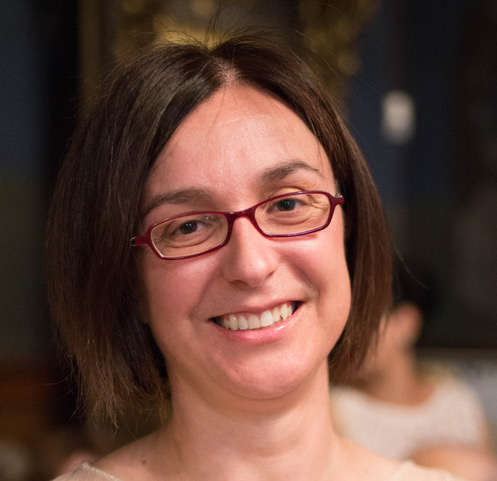A degree in English language and literature opens up a variety of career paths, including:
Teaching: Many English graduates pursue careers in teaching at primary, secondary, or tertiary levels.
Writing and Editing: English graduates often work as writers, editors, or content creators for various media outlets, publishing houses, advertising agencies, or businesses. This can involve writing articles, blogs, marketing materials, or editing manuscripts.
Publishing: Working in publishing involves roles such as editorial assistants, literary agents, or production managers. English graduates can contribute to the publication process by acquiring manuscripts, editing content, or managing the production of books and magazines.
Journalism: Graduates with a degree in English can pursue careers in journalism, reporting, or broadcasting. They may work for newspapers, magazines, online publications, or broadcast networks, covering news, features, or entertainment stories.
Public Relations and Communications: English graduates often excel in roles related to public relations. They may write press releases, create promotional materials, manage social media accounts, or handle media relations for organizations.
Copywriting and Content Marketing: Copywriting involves creating persuasive content for advertisements, websites, or marketing campaigns. English graduates with strong writing skills can thrive in this field, crafting engaging and effective messages to promote products or services.
Freelance Writing: Many English graduates choose to work as freelance writers, offering their services to various clients. This can include writing articles, blogs, copywriting, editing, or ghostwriting for individuals, businesses, or publications.
Digital content writing: English graduates can apply their language and communication skills to create user-friendly content for websites, apps, or digital platforms.
These are just a few examples, and there are many other career paths available to graduates with a degree in English language and literature. The versatility of the degree allows individuals to pursue diverse interests and adapt to various industries and roles.
In this issue, we feature the perspectives of five university graduates who have pursued careers outside Greece. What prompted their decision to move? Was it the limited opportunities available within the Greek context? Did they find it easy to secure employment at foreign universities? Are they satisfied with their current pursuits? And do they experience feelings of homesickness for Greece?
Enjoy reading!
Dr Vally Lytra, Reader in Languages in Education, Director of Postgraduate Research, Head of MPhil/PhD Education, Centre for Language, Culture and Learning, Department of Educational Studies, Goldsmiths, University of London
- What academic/professional qualifications do you have?
I completed a BA in English Language and Literature at the University of Athens, Greece. I continued with graduate studies first at Georgetown University, Washington DC (MSc Applied Linguistics, 1996) with a Fulbright award and then at King's College London (PhD Sociolinguistics, 2003) funded by the Arts and Humanities Research Board and the Saripolos Bequest, University of Athens.
- What were the working prospects in Greece after your graduation?
After completing my Master’s, I taught academic English at what was at the time the Junior College at Deree, the American College of Greece and EFL at the Foreign Language Teaching Centre (Didaskaleio) of the University of Athens. I also volunteered supporting primary school multilingual children from minoritised backgrounds in English through a local, community-based organisation. Volunteering with young learners of English led me to pursue my doctoral studies investigating children’s talk and communication in a linguistically and culturally diverse state school in Athens. After completing my doctorate, my husband and I decided to continue living and working abroad. - Were the limited options the Greek context offered the factors influencing your decision to work abroad?
Having made the decision to work abroad while raising a young family, I didn’t explore academic opportunities in Greece. Nevertheless, over the years I have collaborated extensively with colleagues based in Universities in Greece and Cyprus on joint projects, academic publications, seminars, and conferences. Recently, I have been involved as project advisor in a fascinating project investigating the language and literacy practices of young Greek new migrants in Germany and Australia led by Professor Dimitris Koutsogiannis, Aristotle University of Thessaloniki. - How easy was it to find work at a foreign university?
Having studied at King’s College London, lectured at London Universities and co-led two major research projects were instrumental in getting my current post at Goldsmiths. I was attracted to Educational Studies at Goldsmiths because of its long legacy in the fields of language education, multilingualism and intercultural education and the opportunity to collaborate with wonderful colleagues. I was very fortunate to be inspired by strong female mentors, my mother Professor Sophia Papaefthymiou-Lytra, Professor Eve Gregory and Professor Marilyn Martin-Jones to mention a few. - What other options do English teachers have apart from working in the state sector e.g. private tutoring, language schools, online teaching?
In addition to teaching in the state and private sectors in Greece, English language and literature graduates can pursue teaching and leadership careers in international schools in Europe and across the globe. They can also work in the not-for-profit sector in the fields of education, culture, international aid and development and work as translators, interpreters, journalists, or educational consultants. Some of these careers may require further specialisation or linguistic competence in other languages. - Are you happy with what you are doing?
Working in higher education certainly keeps me on my toes. I enjoy lecturing, supervising doctoral students, leading doctoral research training and support, and collaborating with colleagues on writing and research. I usually have several projects on the go: I’m very excited to be working with Caroline Kerfoot from Stockholm University in Sweden on the editorship of the ‘Routledge Critical Studies in Multilingualism’ book series. With a great team of colleagues, we launched the Special Interest Group D.EL.EXO. in 2022 to support and advocate for research, policy and practice related to the teaching of Greek worldwide. The creation of this SIG was very close to my heart as I have been actively engaged in research, practice, and grass-roots community activism in the fields of heritage language education and multilingualism over the past twenty years. - What do you miss from Greece?
I miss my family, although I do visit Greece two or three time a year. I hope to spend more time with my parents and my young niece and nephew in the near future, once both my children will be off to university.




